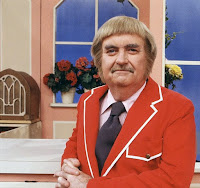
Sources: Wits archive, Institute of Race Relations and Business Day. Kane-Berman is survived by his partner, Pierre Roestorf, and extended family. He was the recipient of the St John’s Golden Eagle Award for tirelessly promoting constitutionalism and economic liberalism.Īt his funeral, former a friend and colleague Paul Periera described Kane-Berman’s primary impulse as “a love of, and respect for humanity” and “he wouldn’t see history as inevitable, political realities as immovable, crass social engineering as acceptable, nor honesty and principles as negotiable”. By the time he retired as CEO in 2014, the institute was one of the most influential source of liberal ideas in the South African public domain. In his 2017 memoir, Between Two Fires – Holding the Liberal Centre in South African Politics (Jonathan Ball, 2017) he wrote: “I myself never had any weapons, other than words”. South Africa’s Silent Revolution (Southern Book Publishers, 1990) detailed how the resistance of ordinary people had become the most important and influential factor in defeating the apartheid.

He used the organisation to plant ideas for a more just South Africa, delivering numerous public speeches and reports, newspaper articles, and books. He moved to freelance journalism and in 1983, become CEO of the South African Institute of Race Relations. We were relentless in exposing each twist and turn of this saga, both the absurdity and the inhumanity.” It was while at the Financial Mail that he wrote his famous book on the Soweto uprising of 1976, Soweto: Black Revolt, White Reaction (Raven Press, 1978). It was also trying to shift the basis of discrimination from race to nationality. The NP was simultaneously trying both to loosen and to strengthen apartheid policies. He wrote of his time there in 2018: “My time at the FM in the 1970s gave me the chance to chronicle the National Party's attempts to reconcile the irreconcilable – economic necessity and political ideology. He was able use his position powerfully to expose the absurdities of apartheid. In 1973 he joined the staff of the Financial Mail. In in 1967 Rhodes University refused to allow delegates to a National Union of South African Students (NUSAS) conference to eat together, he supported Steve Biko’s decision to break from NUSAS and launch the South African Students’ Organisation – on which Kane-Berman reflected decades later that the ensuing rise of Black Consciousness had been “a healthy and necessary development”.įrom Wits he went to Oxford University as a Rhodes Scholar and shortly after his return to South Africa, he met Pierre Roestorf with whom, he entered a civil union performed by Constitutional Court Justice Edwin Cameron. At Wits, Kane-Berman led campaigns against social segregation and government interference in higher education. His education continued at Wits, and in his first year he became part of the Students’ Representative Council (SRC) and later became its president in 1968.

He was the treasurer of the St John’s African Education Fund. He was also the secretary of the SJC Literary Society and chairman of the history society.

He was heavily involved in the literary, historical, and political affairs at the school and was a Geoffrey Cherrington Bursary winner and the co-editor of The Johannian to which he contributed many poems, articles and stories. He received a first-class matric at St John’s College in 1962, which was followed by a year in Sixth Form. His father, Louis, had was chairman of the Torch Commando, the group of World War II veterans, who rallied to the cause of disenfranchise coloured South Africans in the Cape in the early 1950s. Kane-Berman, the eldest of five brothers, was born in Johannesburg in 1946 and he grew up in what he described as a “happy, comfortable, and politically conscious family”. The former CEO of the Institute of Race Relations, John Kane-Berman (BA 1968), died after a short illness on 27 July 2022 at the age of 76.


 0 kommentar(er)
0 kommentar(er)
